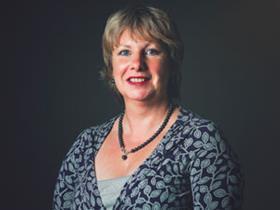Is this the right question?

Can you help the UK government answer a fundamental philosophical question? The Commons education select committee wants to know what education is for and is asking for your opinion. That’s us – humble educators, parents, pupils. They are expecting to ‘hear diverse answers’ and we are all invited to help them out by noon on Monday 25 January.
Why they are asking this, and why that particular question? What do they hope to find out from the answers and how do they plan to act on the findings? Go and have your say, let’s see if we can educate the UK government. I will certainly be interested to find out what we are all here for.
Should it be ‘what is good education’?
Assuming we take a broad view of the purpose of education – to inspire people to learn knowledge and skills for life – should the focus not be on trying to find out how we can do that better? Many of you may be at this year’s Association for Science Education (ASE) conference and a lot will be going on to support the provision of good education. We can achieve this by investing in CPD, raising the status of teachers and funding education research. We should be taking action that gives results we can evaluate and use these to inform our teaching practice.
In this issue of Education in Chemistry, David Read finds two very different studies when exploring recent education research. The first considers how students can develop a deeper conceptual understanding of equilibrium through whole class argumentation sessions. This is a move away from rote-memorisation and towards developing more complex scientific practice. In an age where we learn increasingly through remote access technologies, his second paper considers how students engage with virtual experiments and their perceived ‘realness’.
Engaging students with the concept of reaction rates is another tricky topic. Steve Hacker proposes breaking this down to understanding the individual underlying concepts, which can be supported at each step with easily accessible resources.
Andy Chandler-Grevatt takes a different approach to handling challenging concepts. He introduces his techniques to teach mastery of what he calls threshold concepts – these difficult to learn ideas that open the way to a deeper connected understanding.
Going back to that question, we need education to produce a highly skilled and knowledgeable workforce, capable of sustaining our planet and well-being. An example is our feature on The lignin challenge. Elinor Hughes finds out how scientists use biomass waste to produce valuable chemicals. Finally, Tim Oates suggests how we can find answers by looking at the results of international surveys.
Changes for the new year
You might notice that EiC has a fresh look for the new year – I hope you like it. As part of our efforts to continually improve what we offer our readers, we are currently reviewing The Mole. While we work on this project, content from The Mole will be available for students on the ChemNet website. Teachers will continue to have access to The Mole content online.
Best wishes,
Karen J Ogilvie, editor






No comments yet